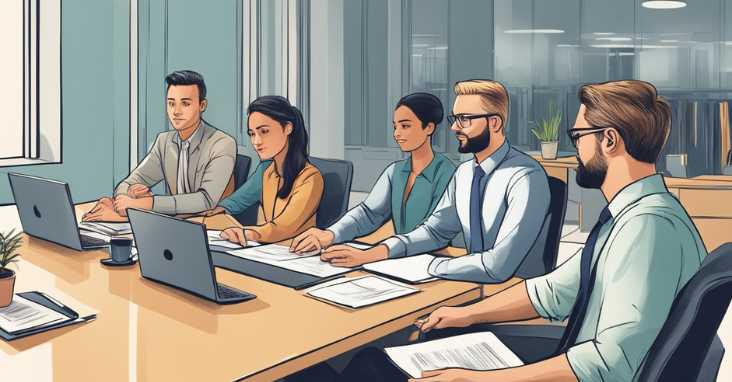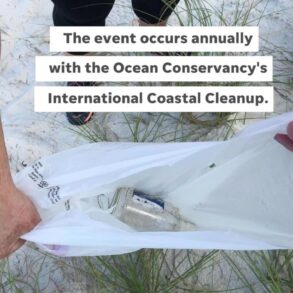What is high ticket closing? High ticket closing involves selling expensive products or services, focusing on personalized strategies to secure large-scale deals.
High ticket closing is a sales strategy that involves selling high-priced products or services to potential clients. This technique requires a specific set of skills and knowledge to successfully close deals and generate revenue. The high ticket closing process is complex and requires a deep understanding of the sales process, client psychology, and effective communication techniques.

Sales professionals who specialize in high ticket closing are in high demand due to the lucrative nature of this sales strategy. These professionals are skilled at building strong relationships with potential clients, understanding their needs and desires, and effectively communicating the value of their products or services. They are also adept at using a variety of sales techniques and closing strategies to successfully close deals and generate revenue.
Key Takeaways:
- High ticket closing is a sales strategy that involves selling high-priced products or services to potential clients.
- Sales professionals who specialize in high ticket closing are in high demand due to the lucrative nature of this sales strategy.
- To be successful in high ticket closing, sales professionals must have a deep understanding of the sales process, client psychology, and effective communication techniques.
Understanding High Ticket Closing
Defining High Ticket Sales
High ticket closing is the art of selling high-priced products and services. These could range from luxury cars, high-end real estate, private jets, and other expensive items. The key to high ticket closing is to understand the value of the product or service being sold and to convey that value to the potential buyer.
The Importance of Value Proposition
One of the most crucial aspects of high ticket closing is having a strong value proposition. This means that the product or service being sold must provide significant value to the buyer. The value proposition should be communicated clearly and concisely to the potential buyer. This could be done through various means such as presentations, demonstrations, or even testimonials from satisfied customers.
Expertise and Industry Knowledge
Another important factor in high ticket closing is having expertise and industry knowledge. A high ticket closer should have a deep understanding of the product or service being sold, as well as the market and industry in which it operates. This knowledge allows the closer to answer any questions the potential buyer may have and to provide valuable insights that can help the buyer make an informed decision.
To learn more about high ticket closing and how to become a successful high ticket closer, check out this resource from Forbes.
The Sales Professional

Becoming a successful high ticket closer requires more than just a knack for selling. It takes a combination of essential skills, a strong sales mindset, and the ability to exude confidence and charisma. In this section, we’ll explore what it takes to become a top-performing sales professional.
Essential Skills for High Ticket Closers
To close high ticket sales, a sales professional must possess a unique set of skills. These skills include active listening, effective communication, and the ability to build rapport with clients. Additionally, a high ticket closer must be able to handle objections and negotiate effectively.
One valuable resource for improving these skills is the book “Spin Selling” by Neil Rackham. This book provides a comprehensive framework for successful selling and has been used by top-performing sales professionals for decades.
Building a Sales Mindset
A sales mindset is crucial for success in high ticket closing. A sales professional must be able to approach each sale with a positive attitude and a willingness to learn. They must also be persistent and have a strong work ethic.
One way to build a sales mindset is to attend sales training courses or seminars. These resources can help sales professionals develop the necessary mindset and skills to succeed in high ticket closing.
The Role of Confidence and Charisma
Confidence and charisma are essential traits for high ticket closing. A sales professional must be able to exude confidence and build trust with clients. They must also possess a natural charisma that draws clients in and makes them feel comfortable.
One useful resource for developing confidence and charisma is the book “How to Win Friends and Influence People” by Dale Carnegie. This book provides practical advice for building relationships and improving communication skills.
In conclusion, becoming a successful high ticket closer requires a combination of essential skills, a strong sales mindset, and the ability to exude confidence and charisma. By developing these traits and utilizing valuable resources, sales professionals can excel in the field of high ticket closing.
Building Client Relationships




The Art of Building Trust
Trust is a fundamental aspect of any relationship, especially in business. Without trust, it’s nearly impossible to build a long-term relationship with a client. Building trust starts with being honest and transparent with your clients. It’s important to set realistic expectations and follow through on your promises. One way to build trust is to be consistent in your communication and actions. This means responding to emails and calls in a timely manner and delivering on your commitments.
Another way to build trust is to be empathetic and understanding of your client’s needs. This involves actively listening to their concerns and providing solutions that meet their specific needs. By taking the time to understand your client’s perspective, you can build a stronger relationship and establish trust.
Effective Communication Strategies
Communication is key to building and maintaining client relationships. Effective communication involves more than just speaking clearly and concisely. It also involves active listening, asking questions, and providing feedback. One way to improve communication with clients is to establish clear lines of communication. This means setting expectations for how and when you will communicate with your clients and sticking to those expectations.
Another effective communication strategy is to use technology to your advantage. This can include using video conferencing, instant messaging, and project management tools to stay connected with clients. By using technology to streamline communication, you can improve efficiency and build stronger relationships with your clients.
Nurturing Long-Term Relationships
Building long-term relationships with clients requires ongoing effort and attention. This means staying in touch with your clients even when you’re not working on a project together. One way to nurture long-term relationships is to provide value beyond your services. This can include sharing industry insights, providing referrals, and offering support and guidance.
Another way to nurture long-term relationships is to be proactive in addressing potential issues. By anticipating and addressing problems before they become major issues, you can demonstrate your commitment to your clients and build trust. This also involves regularly checking in with clients to ensure their needs are being met and providing solutions to any problems that arise.
For more information on building client relationships and high ticket closing, check out this article from Forbes.
Sales Process and Techniques
Mastering the Sales Cycle
The sales cycle is the process that a potential customer goes through in order to become a paying customer. It typically consists of several stages, including prospecting, lead generation, qualification, presentation, and closing. In order to master the sales cycle, a high ticket closer must have a deep understanding of each stage and be able to navigate it with ease.
One key technique for mastering the sales cycle is to establish a strong rapport with the customer. This can be done by actively listening to their needs and concerns, asking open-ended questions, and providing relevant and valuable information. By building trust and establishing a connection with the customer, the high ticket closer can increase the likelihood of a successful sale.
Overcoming Objections
Objections are a natural part of the sales process, and a high ticket closer must be prepared to handle them effectively. Common objections include concerns about price, product fit, and competition. To overcome objections, the high ticket closer must first understand the root of the objection and then address it directly.
One effective technique for overcoming objections is to use the “feel, felt, found” method. This involves acknowledging the customer’s concern (“I understand how you feel”), sharing a similar experience (“Other customers have felt the same way”), and then providing a solution or alternative (“But what they found was…”). By empathizing with the customer and offering a solution, the high ticket closer can turn objections into opportunities.
Advanced Negotiation Tactics
Negotiation is a critical skill for any high ticket closer. To negotiate effectively, the high ticket closer must have a deep understanding of the customer’s needs and goals, as well as their own limits and objectives. They must also be able to communicate clearly and persuasively, while remaining respectful and professional.
One advanced negotiation tactic is to use the “anchoring” technique. This involves starting the negotiation with a high anchor point (e.g. a high price) and then gradually moving down to a more reasonable price. By starting high, the high ticket closer can set the tone for the negotiation and potentially increase the final sale price.
For more information on mastering the sales process and techniques and high ticket closing, check out this resource.
The Psychology of High Ticket Sales
Understanding Client Needs and Pain Points
In high ticket sales, understanding the client’s needs and pain points is essential. It’s not just about selling a product or service, but about solving a problem for the client. By identifying their pain points, a high ticket closer can tailor their pitch to offer a solution that meets the client’s specific needs. This requires active listening, empathy, and the ability to ask the right questions.
According to SalesHacker, understanding the client’s needs and pain points is the foundation of successful sales. By doing so, the closer can build a relationship with the client and gain their trust. This trust is crucial when it comes to closing high ticket sales, as clients are more likely to invest in a solution when they feel confident in the closer’s ability to deliver results.
The Power of Active Listening
Active listening is a critical component of high ticket sales. It involves not just hearing what the client is saying but also understanding their underlying motivations and concerns. By actively listening, the closer can gain a deeper understanding of the client’s needs and pain points, which can then be used to tailor the pitch to their specific situation.
As Forbes notes, active listening is a skill that can be developed and refined over time. It involves paying attention to both verbal and nonverbal cues, asking clarifying questions, and summarizing what the client has said to ensure understanding.
Leveraging Emotional Intelligence
Emotional intelligence is another critical component of high ticket sales. It involves the ability to understand and manage one’s emotions and the emotions of others. By leveraging emotional intelligence, a high ticket closer can build rapport with the client, understand their motivations, and tailor the pitch to their specific emotional needs.
According to Harvard Business Review, emotional intelligence is a critical skill for successful sales professionals. It involves the ability to read and interpret emotional cues, manage one’s own emotions, and respond appropriately to the emotions of others.
In summary, the psychology of high ticket sales involves understanding client needs and pain points, active listening, and leveraging emotional intelligence. By mastering these skills, a high ticket closer can build trust with clients, tailor their pitch to specific needs, and ultimately close more high ticket sales.
Closing Strategies




High ticket closing deal requires a combination of effective sales techniques and a well-crafted sales proposal. The following subsections will explore some of the most effective strategies for high ticket closing deals.
Crafting Compelling Sales Proposals
Crafting a compelling sales proposal is essential to high ticket closing deals. The proposal should clearly outline the benefits of the product or service being offered, as well as the cost and any potential risks or drawbacks. It should also include testimonials from satisfied customers and a clear call to action. By providing a comprehensive and persuasive proposal, the salesperson can help the prospect make an informed decision.
One useful tool for crafting a compelling sales proposal is a value proposition canvas. This tool helps salespeople identify the key benefits of their product or service and how it addresses the needs and pain points of the prospect. By using this framework, salespeople can create a proposal that is tailored to the specific needs of the prospect.
Effective Closing Techniques
Closing techniques are the methods used by salespeople to persuade the prospect to make a purchase. Some of the most effective closing techniques include the assumptive close, the alternative close, and the trial close.
The assumptive close involves assuming that the prospect has already made the decision to buy and asking for the details needed to complete the sale. The alternative close involves presenting the prospect with two options, both of which lead to a sale. The trial close involves asking the prospect for their opinion on the product or service to gauge their interest and commitment.
The Follow-Up: Securing the Deal
The follow-up is a critical part of the sales process and can often be the difference between closing the deal and losing the prospect. Following up with the prospect shows that the salesperson is committed to helping them make an informed decision and can also provide an opportunity to address any concerns or objections.
One effective follow-up strategy is to send a personalized email or handwritten note thanking the prospect for their time and reiterating the key benefits of the product or service. Another strategy is to schedule a follow-up call or meeting to answer any additional questions and provide further information.
By using these closing strategies, salespeople can increase their chances of high ticket closing deals and securing long-term partnerships with their clients.
For more information on closing strategies, check out this resource from Salesforce, a leader in sales and customer relationship management.
Leveraging Technology and Tools




CRM Systems and Sales Automation
To effectively manage high ticket sales, it is crucial to have a robust customer relationship management (CRM) system in place. These systems allow sales professionals to track leads, monitor customer interactions, and manage sales pipelines. By automating routine tasks like follow-up emails and appointment scheduling, sales teams can focus on building relationships and closing deals.
One popular CRM system for high ticket sales is Salesforce. With its intuitive interface and customizable features, Salesforce enables sales teams to streamline their workflows and improve their productivity. Other popular CRM systems include HubSpot, Zoho, and Pipedrive.
Digital Platforms for High Ticket Sales
In today’s digital age, online sales channels are becoming increasingly important for high ticket sales. Social media platforms like LinkedIn and Twitter can be powerful tools for building relationships with potential clients and promoting products and services. Online marketplaces like Amazon and eBay can also be useful for selling high ticket items to a wider audience.
To maximize the potential of these platforms, it is important to have a strong digital marketing strategy in place. This may include tactics like targeted advertising, content marketing, and search engine optimization (SEO).
One digital platform that has gained popularity in recent years for high ticket sales is ClickFunnels. ClickFunnels is a sales funnel builder that allows users to create custom landing pages, sales pages, and order forms. With its drag-and-drop interface and pre-built templates, ClickFunnels makes it easy to create high-converting sales funnels.
Overall, leveraging technology and tools is essential for succeeding in high ticket sales. By utilizing CRM systems, online sales channels, and digital marketing strategies, sales professionals can improve their efficiency, build stronger relationships with clients, and ultimately close more deals.
Here is a resource with more information on best practices for sales processes in CRM systems.
Scaling High Ticket Sales




Building and Training a Sales Team
Scaling high ticket sales requires building and training a competent sales team. The team should have a deep understanding of the product or service being sold and be able to communicate its value proposition effectively. A sales team that is well-trained and equipped with the necessary tools can help increase revenue and grow the business.
To build a sales team, it is important to identify the right candidates who possess the required skills and experience. The team should be made up of individuals who are passionate about sales and have a proven track record of success. Once the team is assembled, they should be trained on the product or service, sales techniques, and objection handling.
Creating Scalable Sales Strategies
Creating scalable sales strategies is essential to grow a high ticket sales business. A scalable sales strategy is one that can be replicated across different markets and customer segments. It involves identifying the most effective channels to reach potential customers, developing a sales process, and measuring the success of each channel.
One effective way to scale sales is by leveraging technology. Sales automation tools can help streamline the sales process, reduce manual work, and improve efficiency. Another strategy is to create a referral program that incentivizes existing customers to refer new customers.
To create scalable sales strategies, it is important to continuously test and optimize different approaches. This involves tracking key metrics such as conversion rates, customer acquisition cost, and lifetime value. By analyzing data and making data-driven decisions, businesses can optimize their sales strategies for maximum impact.
For more information on scaling high ticket sales, check out this article.
Frequently Asked Questions




What qualifications are needed to secure a job in high ticket closing?
There are no specific qualifications required to become a high ticket closer. However, having a background in sales, marketing, or customer service can be beneficial. Additionally, possessing excellent communication and negotiation skills can help one excel in this field.
How does one start a career in high ticket closing?
To start a career in high ticket closing, one can begin by researching companies that offer high ticket products or services. Networking with individuals in the industry can also be helpful in finding job opportunities. It is important to have a solid understanding of the product or service being sold and to be able to effectively communicate its value to potential clients.
What are the average salary expectations for a high ticket closer?
Salaries for high ticket closers can vary widely depending on the industry and the product or service being sold. However, it is not uncommon for high ticket closers to earn six-figure salaries or more.
Can high ticket closing be effectively performed remotely?
Yes, high ticket closing can be effectively performed remotely. With the advancement of technology, many companies now offer remote positions for high ticket closers. However, it is important to have a reliable internet connection and access to the necessary software and tools to perform the job effectively.
What are the core skills required to become a successful high ticket closer?
To become a successful high ticket closer, one must possess excellent communication and negotiation skills. It is also important to have a deep understanding of the product or service being sold and to be able to effectively communicate its value to potential clients. Additionally, having a strong work ethic, being able to handle rejection, and being adaptable are all important traits for success in this field.
Are there reputable courses available for learning high ticket closing techniques?
Yes, there are many reputable courses available for learning high ticket closing techniques. One such course is the High Ticket Closer Certification Program offered by Dan Lok. This program provides comprehensive training on high ticket closing techniques and includes mentorship and support from experienced high ticket closers.
Click here to learn more about the High Ticket Closing Certification Program.
Compare hundreds of Sales Enablement Software in our Software Marketplace
This post was originally published on this site be sure to check out more of their content





